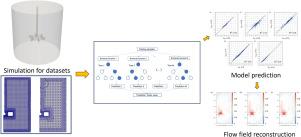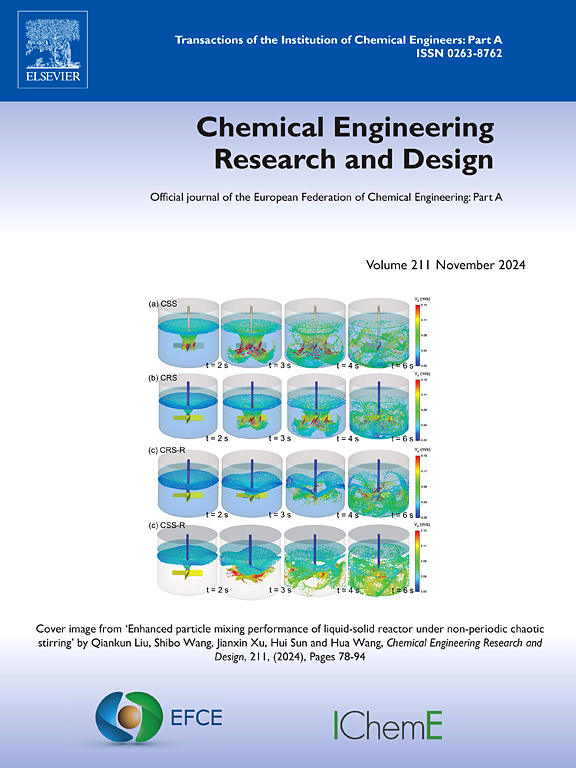Implementation of a data-driven model for mesh-induced error corrections in CFD simulations of stirred tanks
IF 3.9
3区 工程技术
Q2 ENGINEERING, CHEMICAL
引用次数: 0
Abstract
Using computational fluid dynamics (CFD) for reactor design is an established area in chemical engineering, and the emergence of machine learning (ML) approaches offers new possibilities for CFD. This work reports the integration of data-driven ML models with CFD to increase the efficiency of simulations of stirred tanks. By predicting and correcting mesh-induced errors in coarse-grid CFD simulations, it is demonstrated that ML models can significantly improve simulation results, reduce computational costs, and maintain high accuracy. This approach involves training a Random Forest surrogate model using high-fidelity and low-fidelity data generated from CFD and applying it to predict and correct coarse-mesh simulation inaccuracies. For the case study of single-phase flow in a stirred tank, the machine learning model demonstrated good performance in various scenarios, including interpolation and extrapolation of error predictions, highlighting the potential of combining ML with traditional CFD methods for flow field reconstruction. The study also explores the effect of selected physical features, providing the optimal feature combination for model training.

搅拌槽CFD模拟中网格误差修正数据驱动模型的实现
利用计算流体动力学(CFD)进行反应器设计是化学工程领域的一个既定领域,机器学习(ML)方法的出现为CFD提供了新的可能性。本工作报告了数据驱动的ML模型与CFD的集成,以提高搅拌槽的模拟效率。通过对粗网格CFD仿真中网格误差的预测和修正,证明ML模型可以显著改善仿真结果,降低计算成本,并保持较高的精度。该方法包括使用CFD生成的高保真度和低保真度数据训练随机森林代理模型,并将其应用于预测和纠正粗网格模拟的不准确性。以搅拌槽内单相流为例,机器学习模型在误差预测的插值和外推等多种场景下均表现出良好的性能,凸显了机器学习与传统CFD方法相结合进行流场重构的潜力。研究还探讨了所选择的身体特征的效果,为模型训练提供了最优的特征组合。
本文章由计算机程序翻译,如有差异,请以英文原文为准。
求助全文
约1分钟内获得全文
求助全文
来源期刊

Chemical Engineering Research & Design
工程技术-工程:化工
CiteScore
6.10
自引率
7.70%
发文量
623
审稿时长
42 days
期刊介绍:
ChERD aims to be the principal international journal for publication of high quality, original papers in chemical engineering.
Papers showing how research results can be used in chemical engineering design, and accounts of experimental or theoretical research work bringing new perspectives to established principles, highlighting unsolved problems or indicating directions for future research, are particularly welcome. Contributions that deal with new developments in plant or processes and that can be given quantitative expression are encouraged. The journal is especially interested in papers that extend the boundaries of traditional chemical engineering.
 求助内容:
求助内容: 应助结果提醒方式:
应助结果提醒方式:


